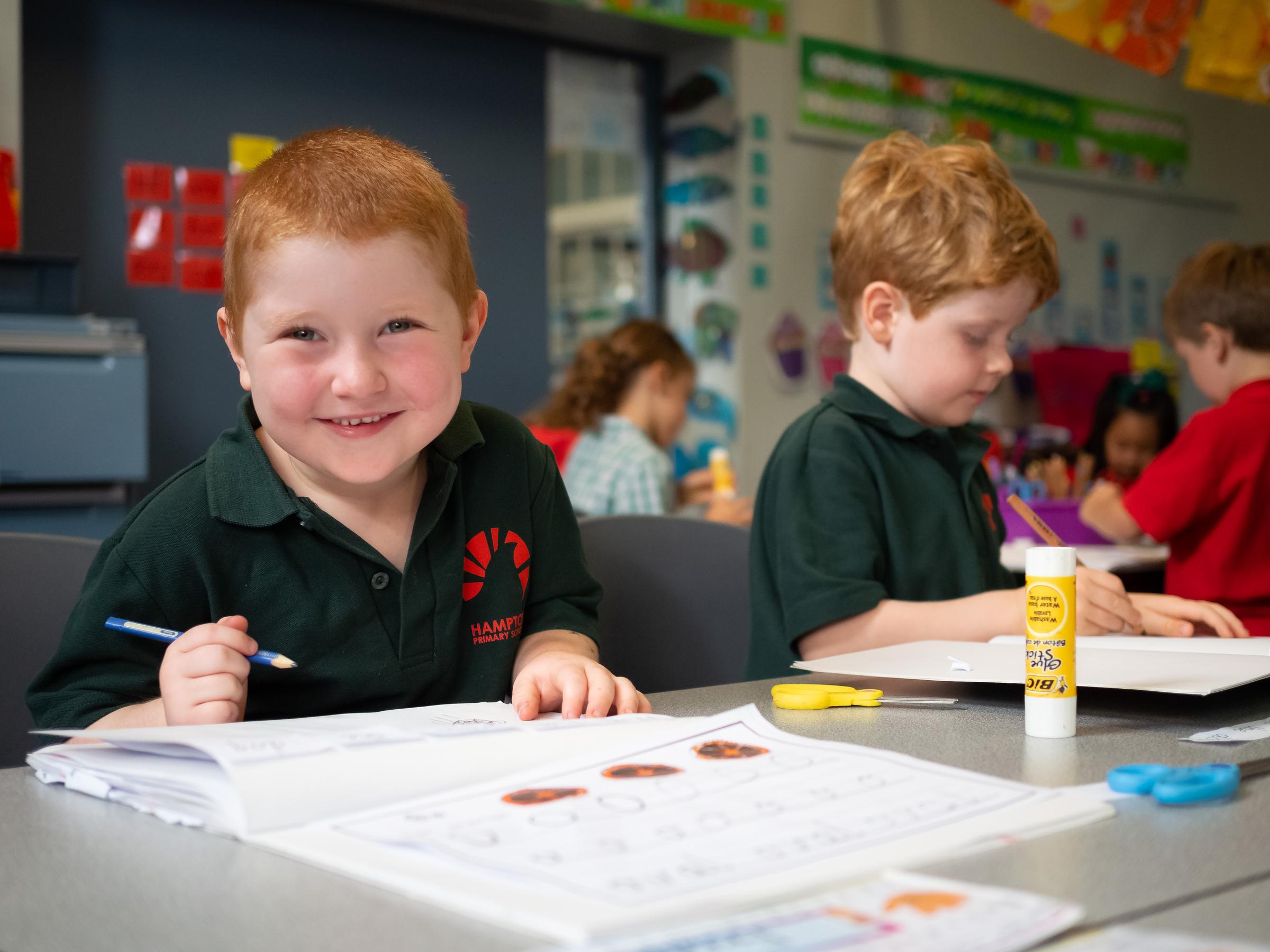Curriculum

Victorian High Ability Program
As the term draws to a close, we reflect on the excellent participation and involvement of a large group of Year 6 students who were selected to participate in the Victorian High Ability Program. The selection process is managed by the Department of Education and draws on a combination of teacher judgement and NAPLAN data to identify high achieving students in Mathematics and English.
The 10 week online program each term saw the selected students join Virtual School Victoria for one hour a week (as well as pre and post lesson work) where they engaged in tasks designed to stimulate their critical thinking, problem solving and creativity – enriching their understanding of Mathematics and English. Throughout the term, these students showed excellent commitment, organisation and demonstrated a regular ability to think outside the box.
Congratulations to Ted B, Alice B-T, Morgan D, Stevie M, Sam N, Lili H, Lucy K, Tim L, Max L, Darcey L, Sasha R, Teddy S, Zoe S, Aria S, Sienna S, Charlotte T, Eva W and Lola Z!
I really enjoyed Math VHAP because it challenged me in lots of ways and made me think more than I would usually. I also learnt lots of things like code-cracking, Egyptian number patterns, Chinese number patterns and lots more. The most challenging thing I was learning in VHAP was probably the Egyptian number pattern because it was so hard to remember what different drawings matched the number. I mostly enjoyed the code-cracking because you really had to think outside the box. I thought the whole VHAP Maths was a great experience and it helped my learning in lots of ways. It was challenging, It made me think outside the box, I got to meet new people and overall it was amazing. Morgan 6C
The VHAP English program was very beneficial for my learning. The hero’s journey was a very fun activity and I learned a lot from it. I had trouble doing all the homework, but I was able to get it done in time. The character archetypes help me to recognise different types of characters. I also loved writing my story at the end. I recommend the VHAP English program to students who want to improve their literacy understanding and skills. Lola 6B
Timothy Bernau | Assistant Principal
Insights: Helping students get ready for the NAPLAN tests
The most resilient children and young people are those who rise to meet rather than retreat from the challenges presented to them. Perhaps itʼs best to view the NAPLAN tests as good learning experiences rather than dreaded pressure tests. During the second week of May Australian children in Years 3, 5, 7 and 9 will take part in the National Assessment Program – Literacy and Numeracy (NAPLAN). The stated purpose of this testing program is to gain an overall picture of educational attainment levels to assist education policy and decision-making. The program, first implemented in 2008, has drawn some criticism from a number of dierent quarters, particularly in regard to the use of the information gained through the NAPLAN tests. Youʼve probably heard a number of dierent viewpoints expressed in the media over the last few weeks. One view commonly put forward is that the NAPLAN tests put undue pressure on children to perform in test situations. If so, then perhaps the best approach for parents and teachers is to help them handle the pressure rather than avoid it. The most resilient children and young people are those who rise to meet rather than retreat from the challenges presented to them. Perhaps itʼs best to view the NAPLAN tests as good learning experiences rather than dreaded pressure tests. Children and young people take their cues from their parents about how to handle many situations. American psychologist Martin Seligman discovered more than a decade ago, through his research into childrenʼs thinking styles, how closely a childʼs explanatory style mimics that of the parent they spend most time around. Optimistic parents beget optimistic kids, just as anxious parents can beget anxious kids. The impact of a parentʼs explanatory style seems to be magnified somehow in small families where there are fewer voices to be heard. As a parent it helps your child, if you take a positive view of the NAPLAN tests. Itʼs better to see them as learning opportunities for kids as well as opportunities to overcome any anxieties or nerves that these tests may bring on. Itʼs also worth remembering that many children donʼt stress over these tests. The vast majority take them in their stride, wondering what all the fuss is about.
Whether your child stresses or takes them in his stride here are some tips to help prepare for the NAPLAN tests:
- Take your cues from your child: If your child doesnʼt worry about them then neither should you. Be careful not to create a problem that doesnʼt exist by incessantly talking about, or worse, worrying about the test.
- Focus on doing their best and trying hard: Choose your words carefully when you speak with your kids. As with all their learning activities place your focus squarely on eort rather than results. The only pressure on kids should be to try hard rather than to do well.
- Listen to any concerns they have: If your child confesses to some nerves then validate their feelings, rather than shut them down with a ʻget over itʼ response. “Yes, sometimes tests can be a little scary, but they get easier every time you take them.” Use this as an opportunity to develop some emotional smarts, which starts with recognising how kids feel.
- Give them some relaxation ideas: Anxious or nervous kids will benefit from some simple relaxation strategies. Taking some deep breaths, changing their thinking and exercising the morning of the test are some simple ways to help kids get some feeling of control.
- Help them retain their perspective: One way to help children who become excessively anxious about an event is to ask whatʼs the worst thing that could happen? Okay, they may not do as well as they would like but the sun will still rise tomorrow, regardless of how well they do. Keeping perspective is a life skill that we all need to practise.
A positive, caring parent attitude is one of the best gifts you can give a child when they are apprehensive or nervous about approaching any dierent situation whether itʼs going on school camp, joining a new club or sitting a NAPLAN test.
Michael Grose - Parenting Ideas

